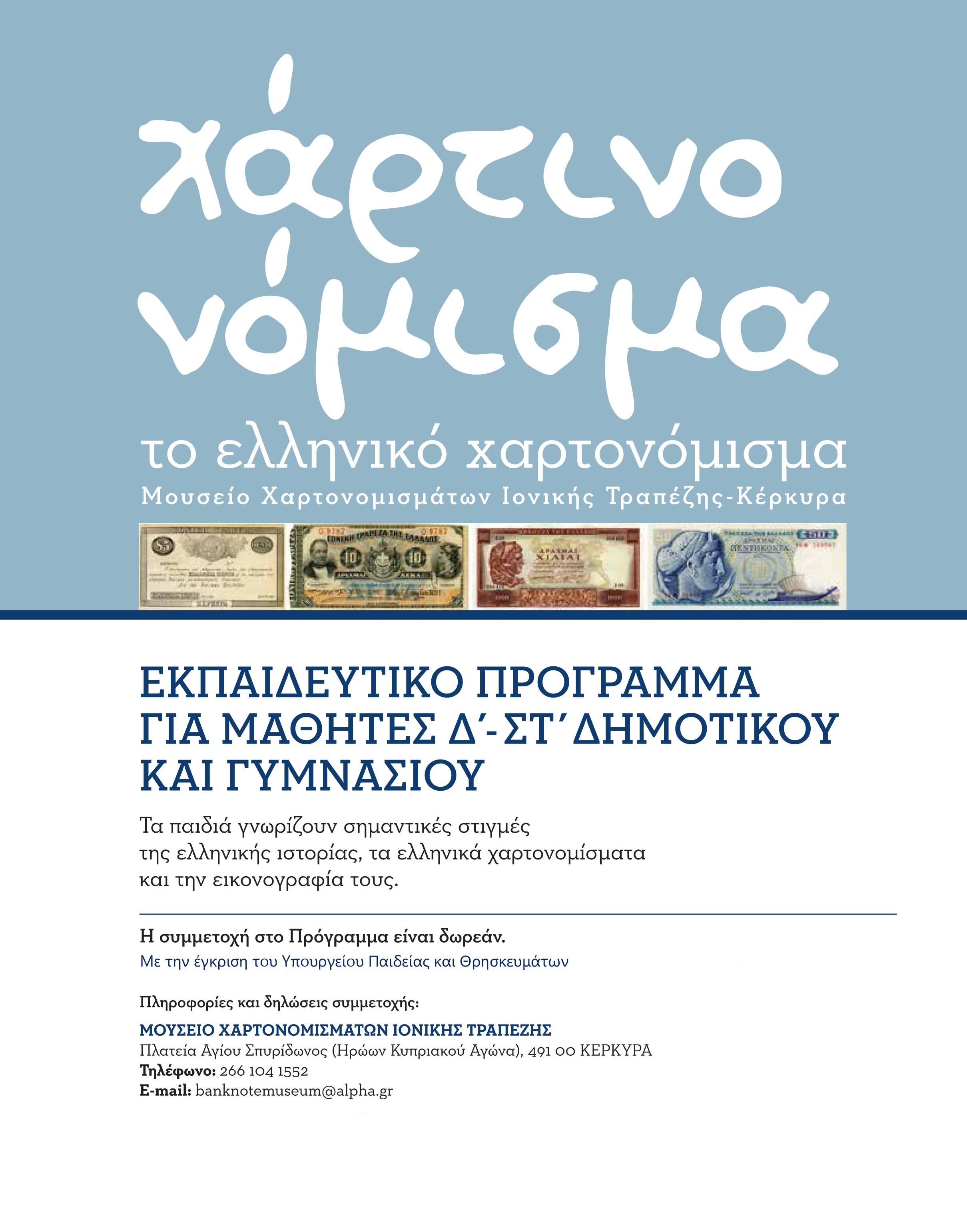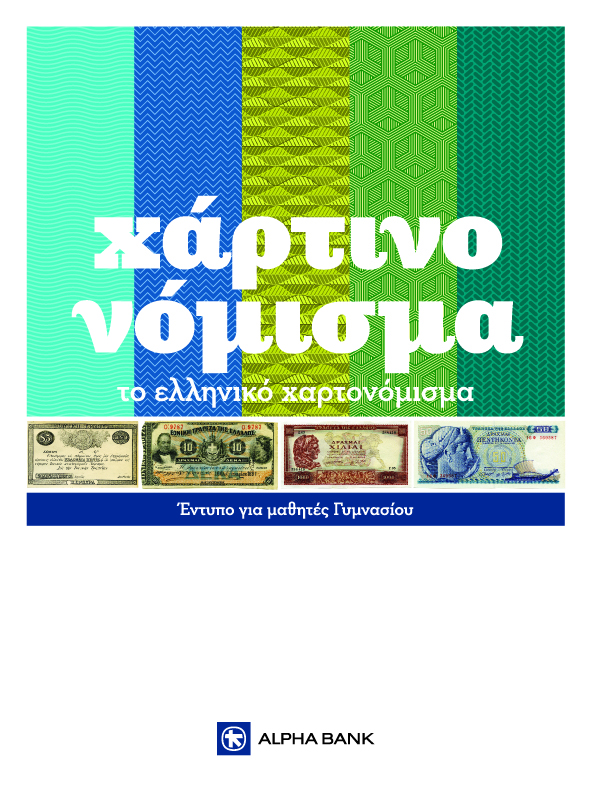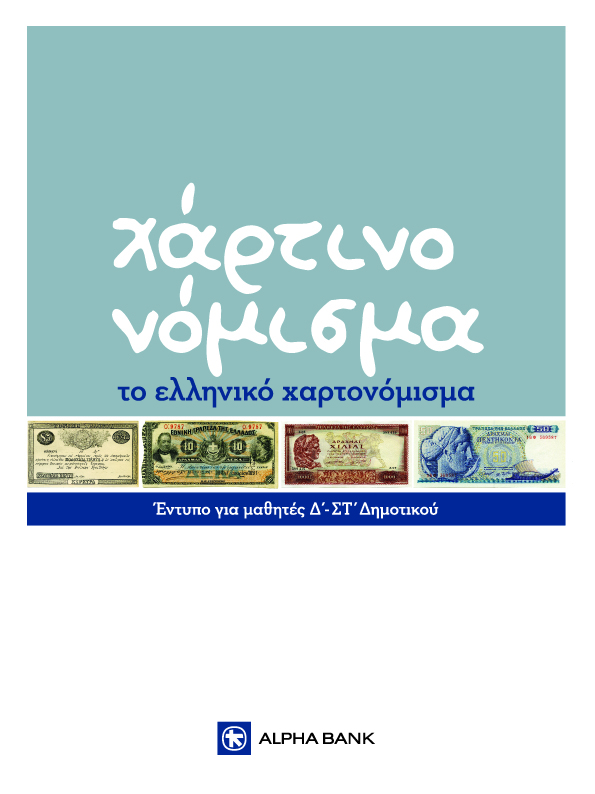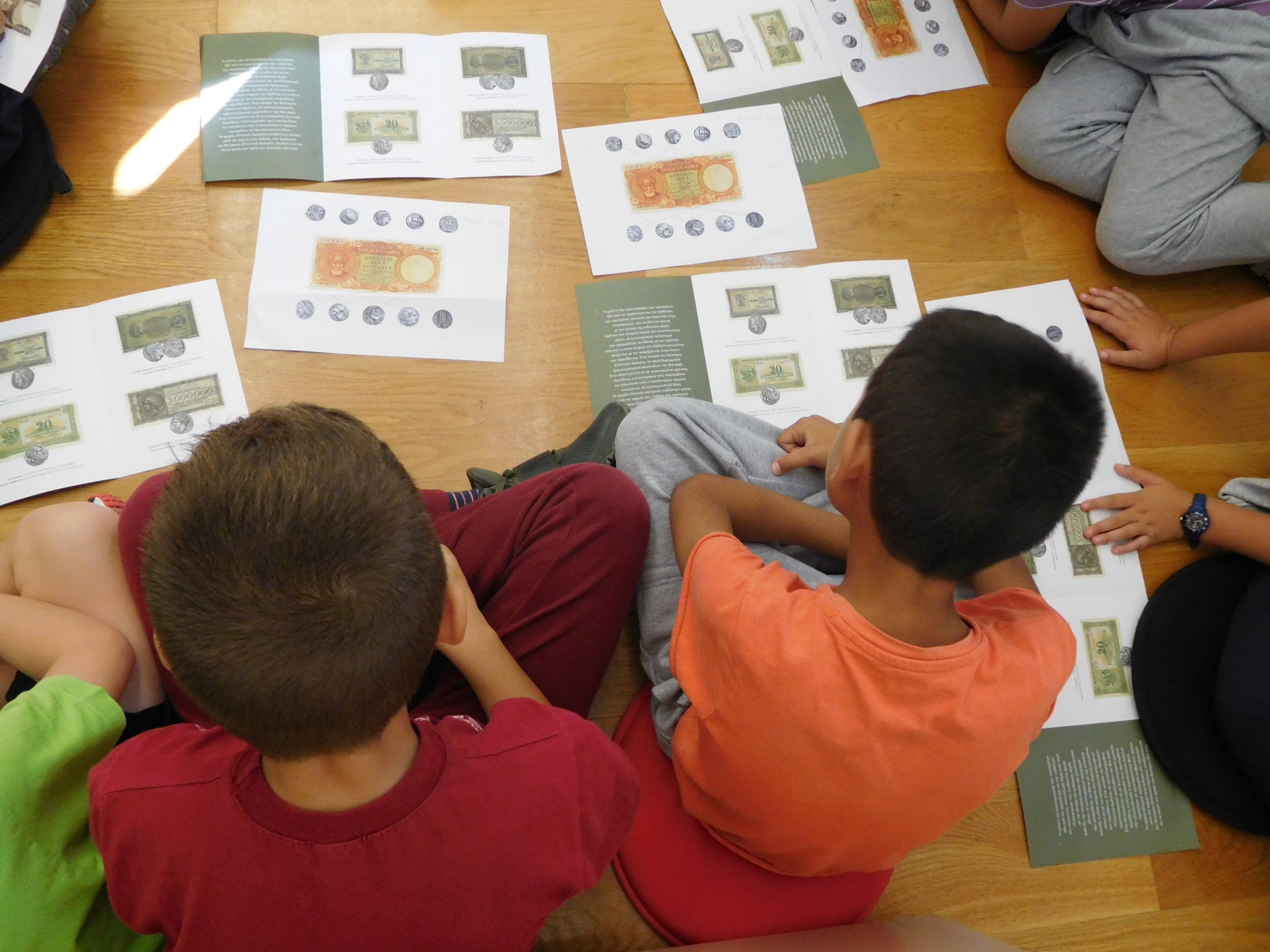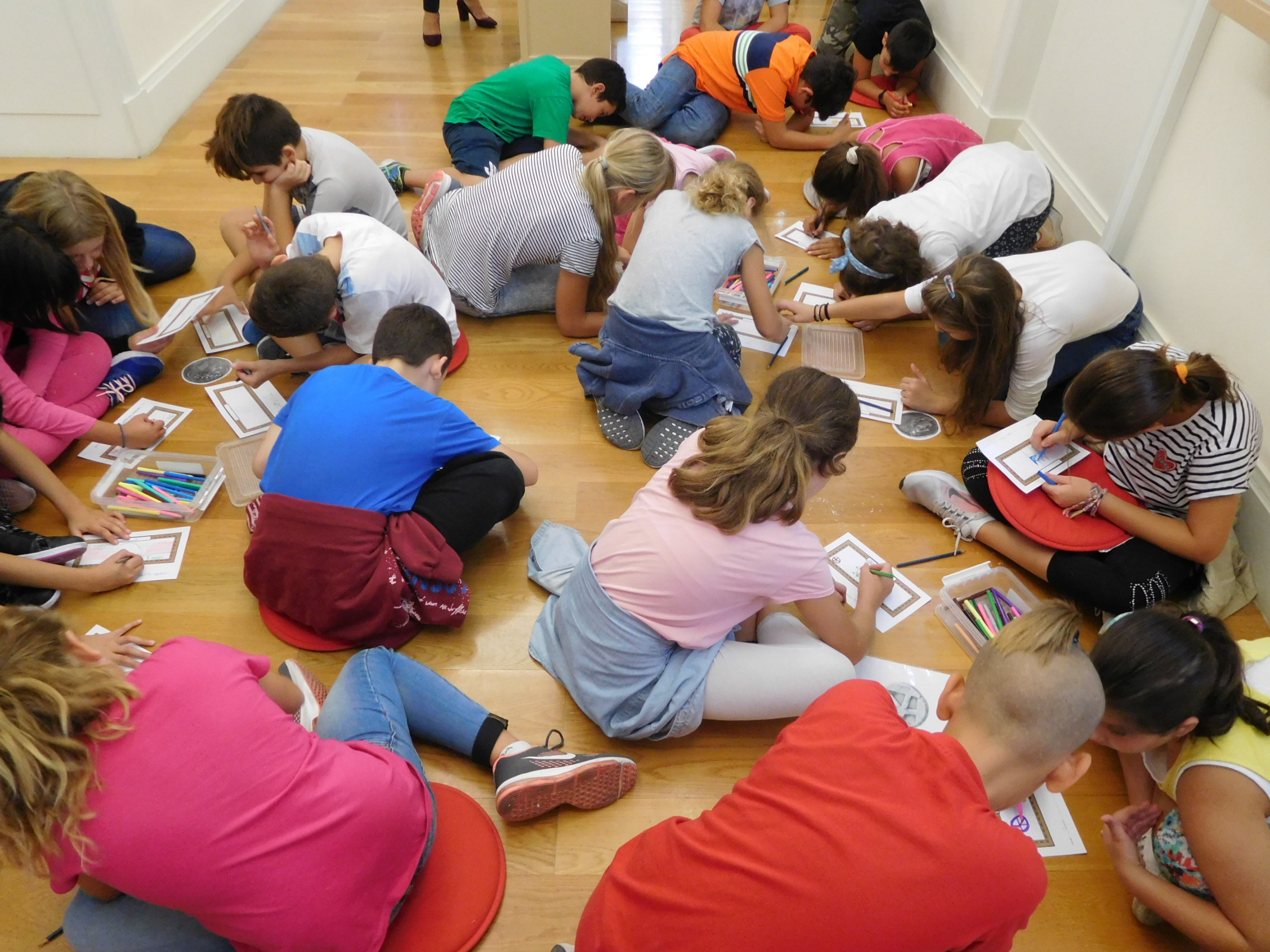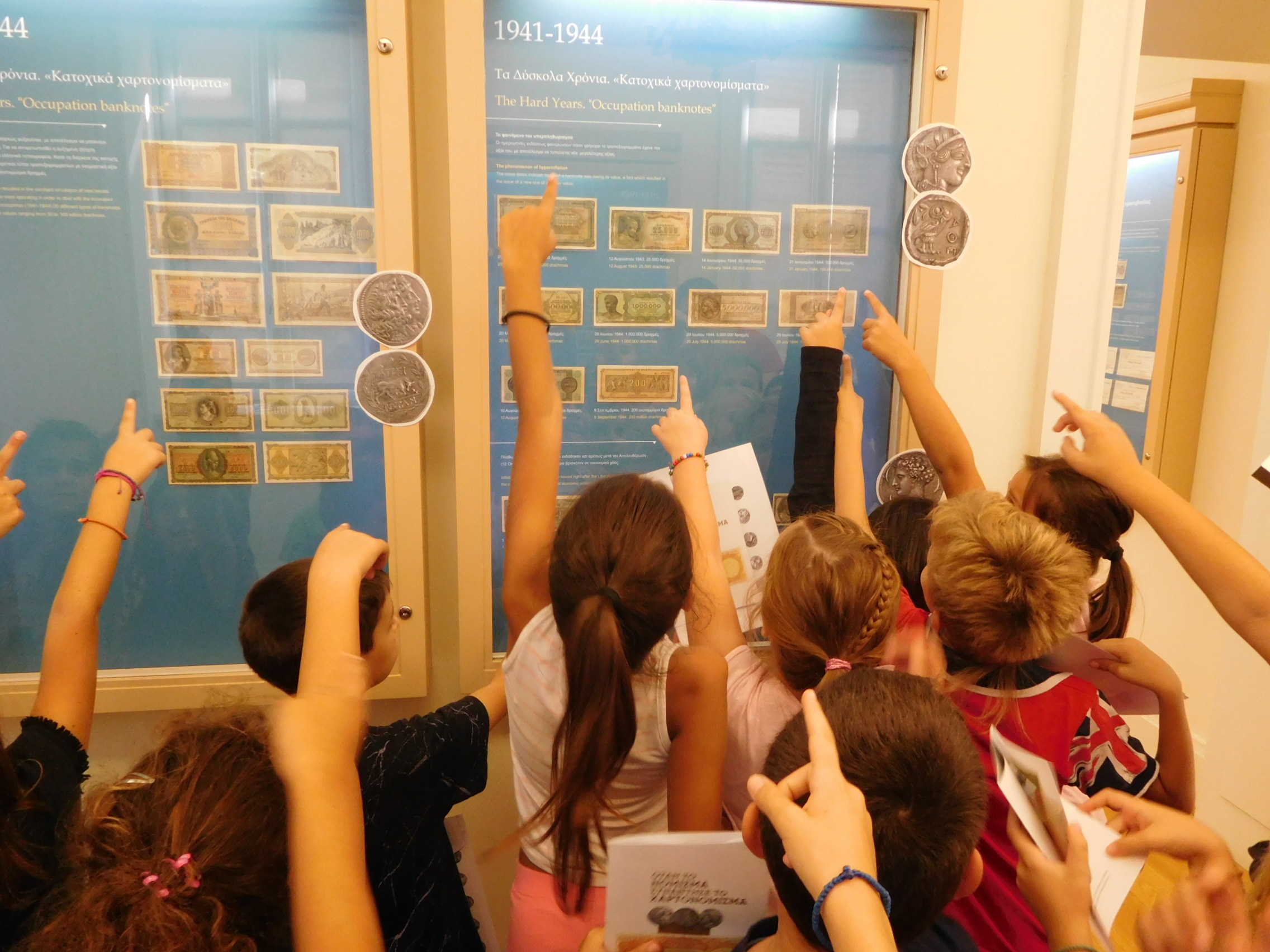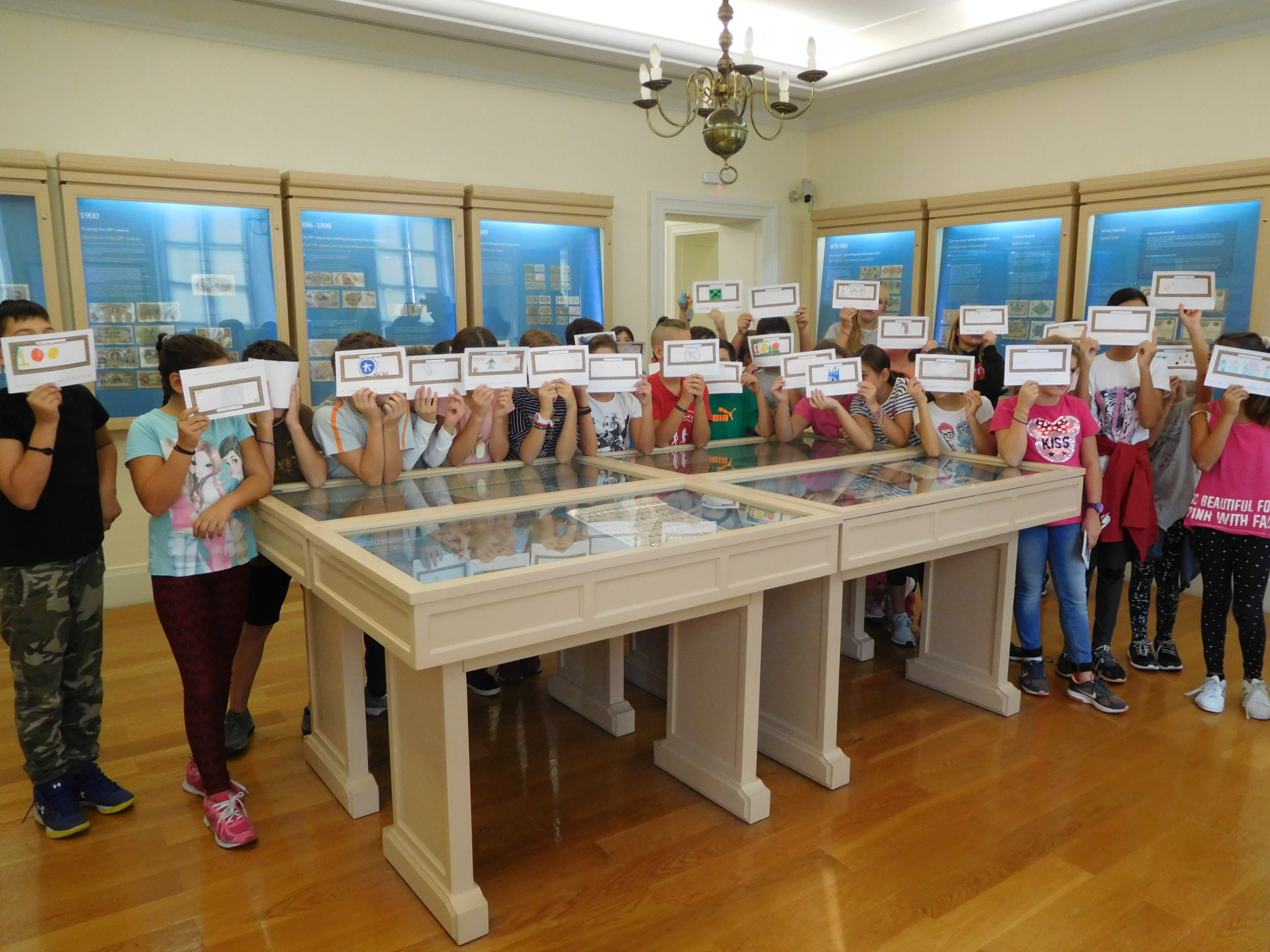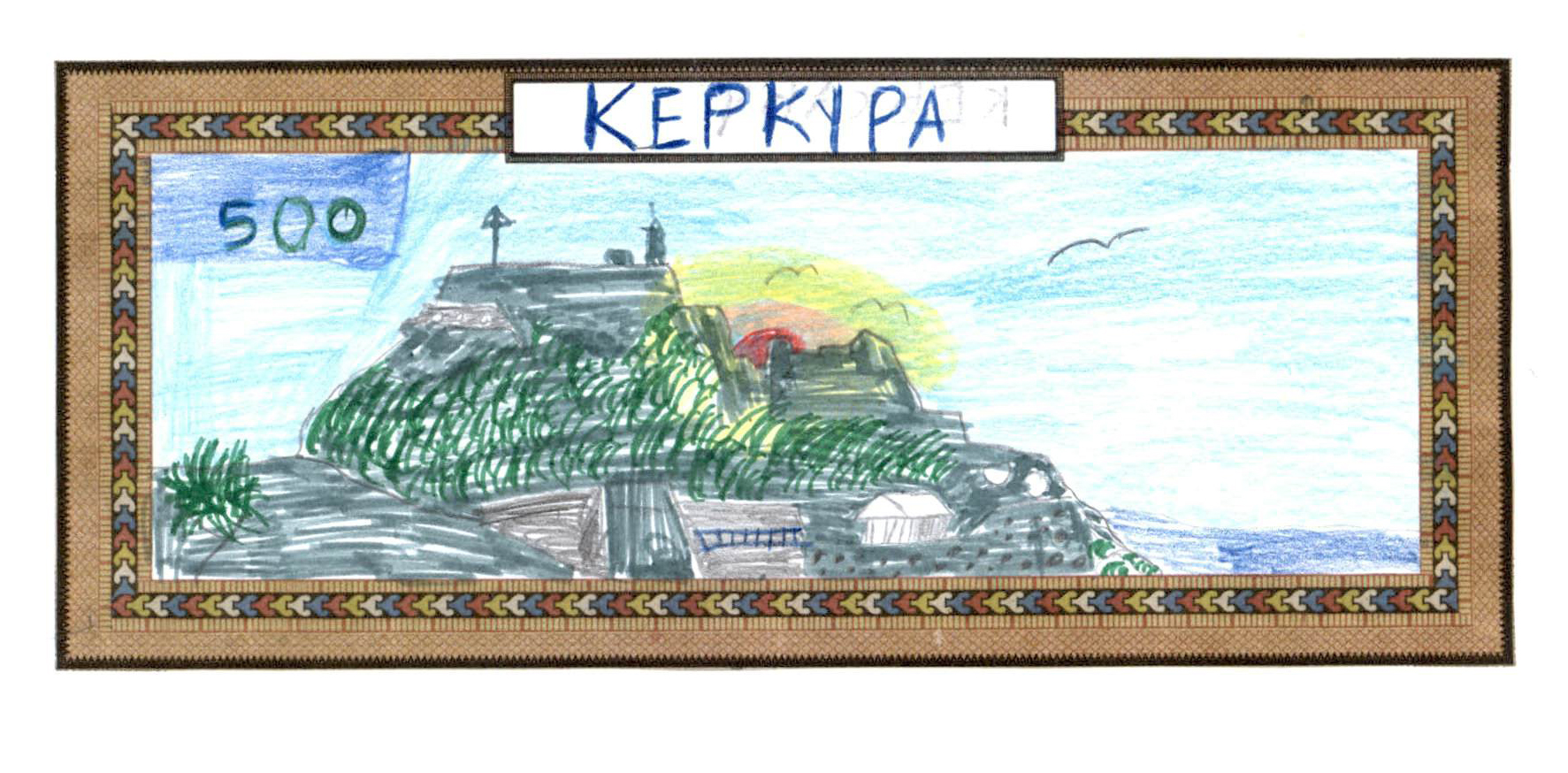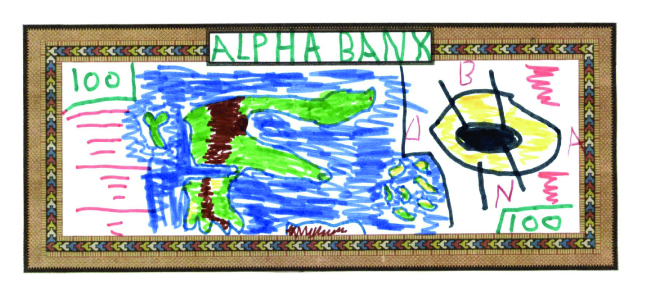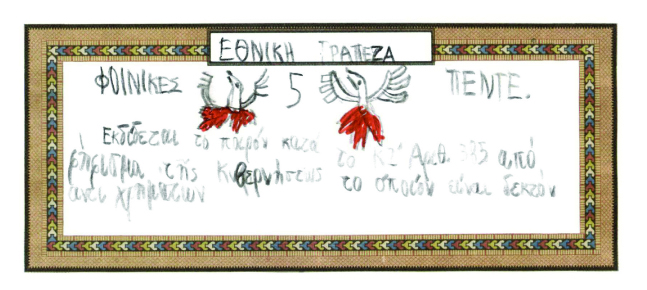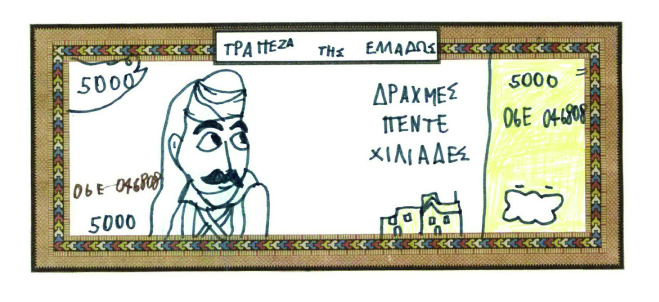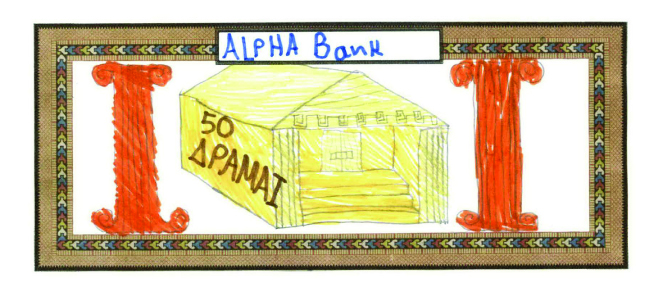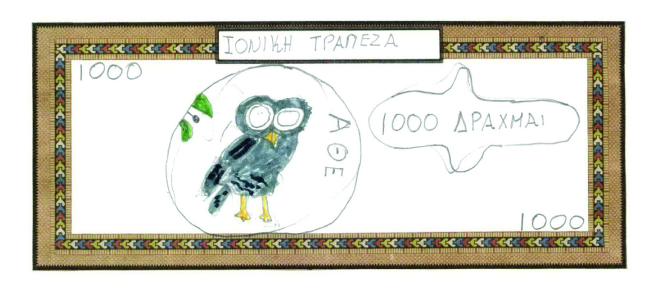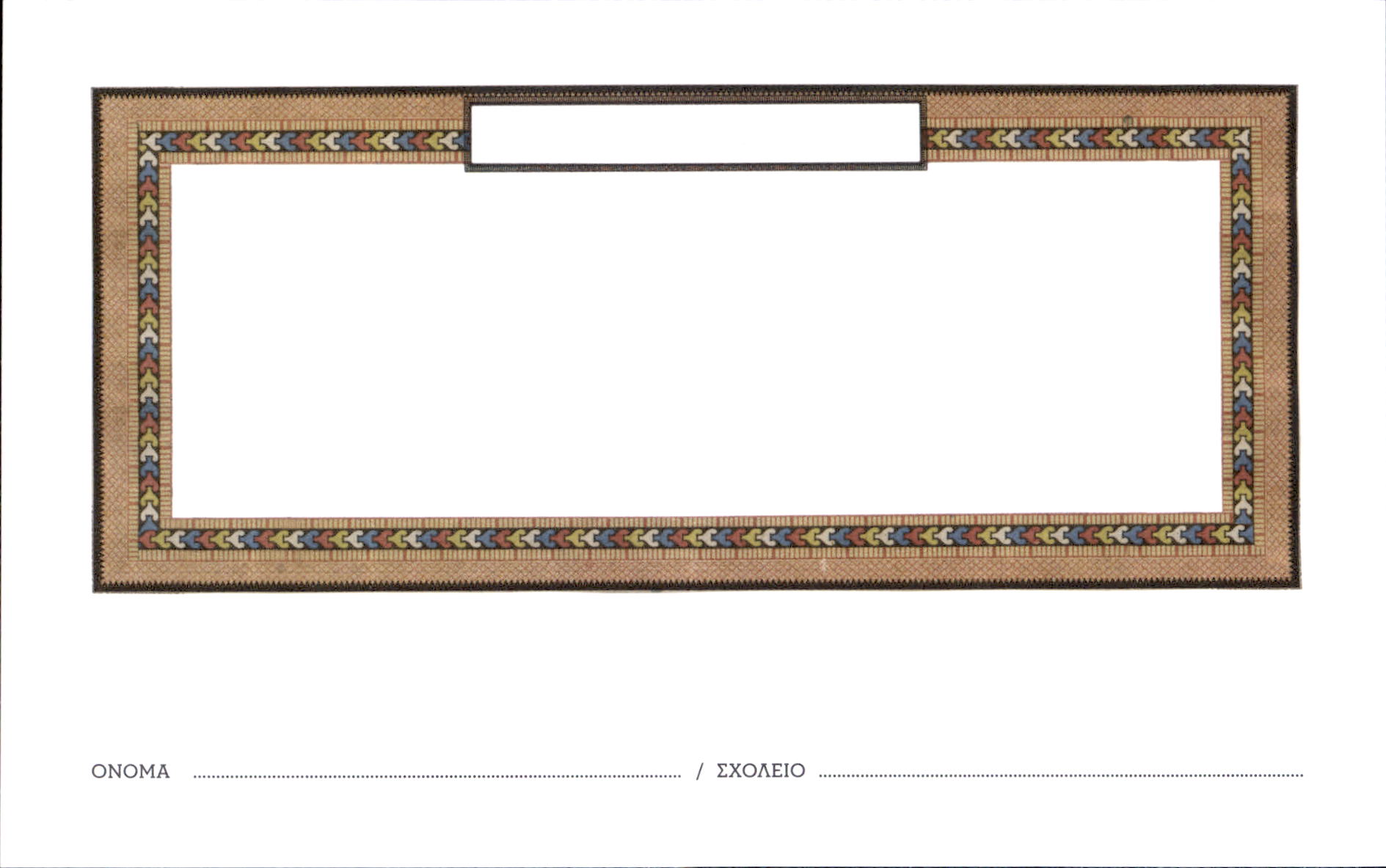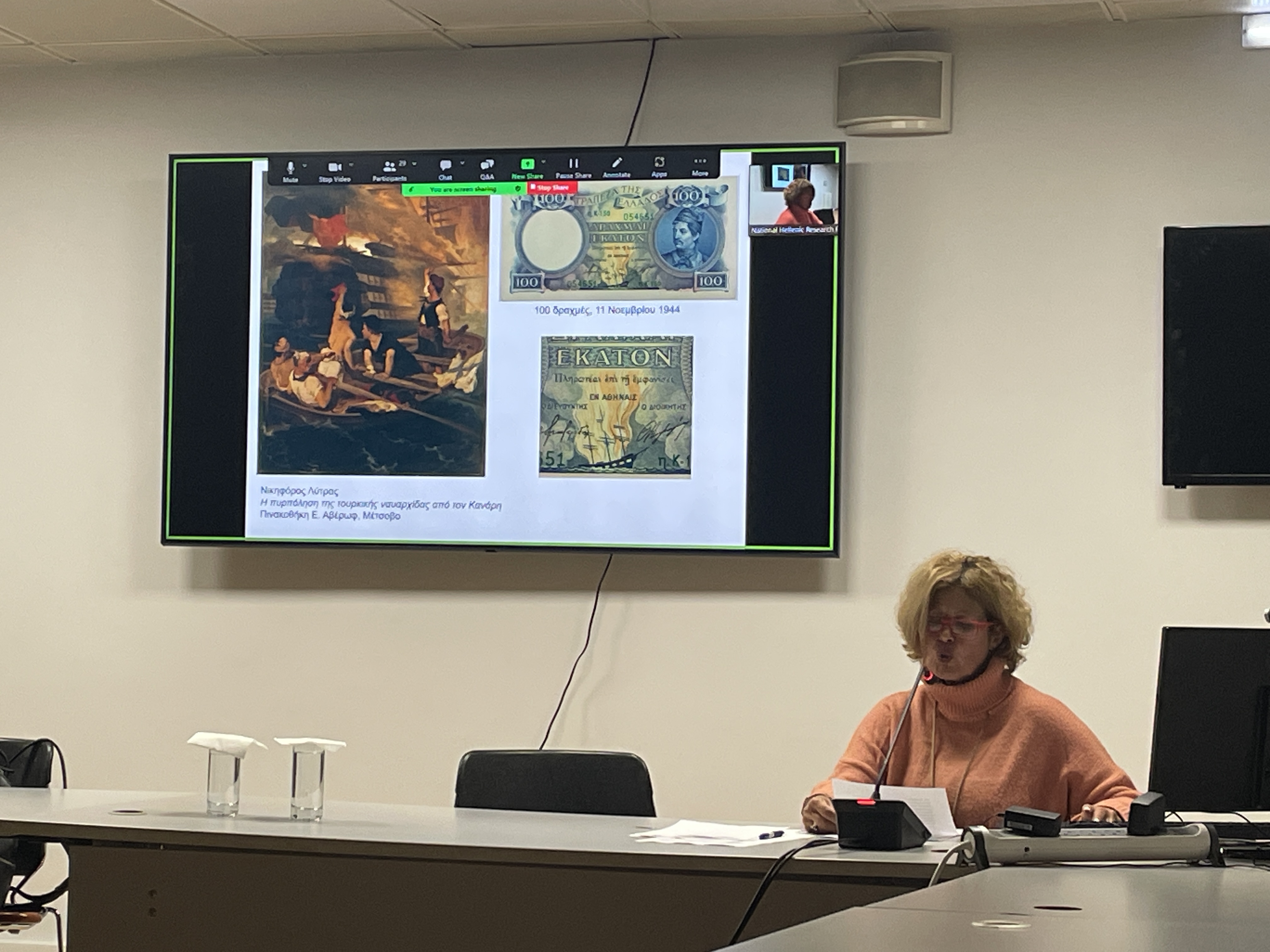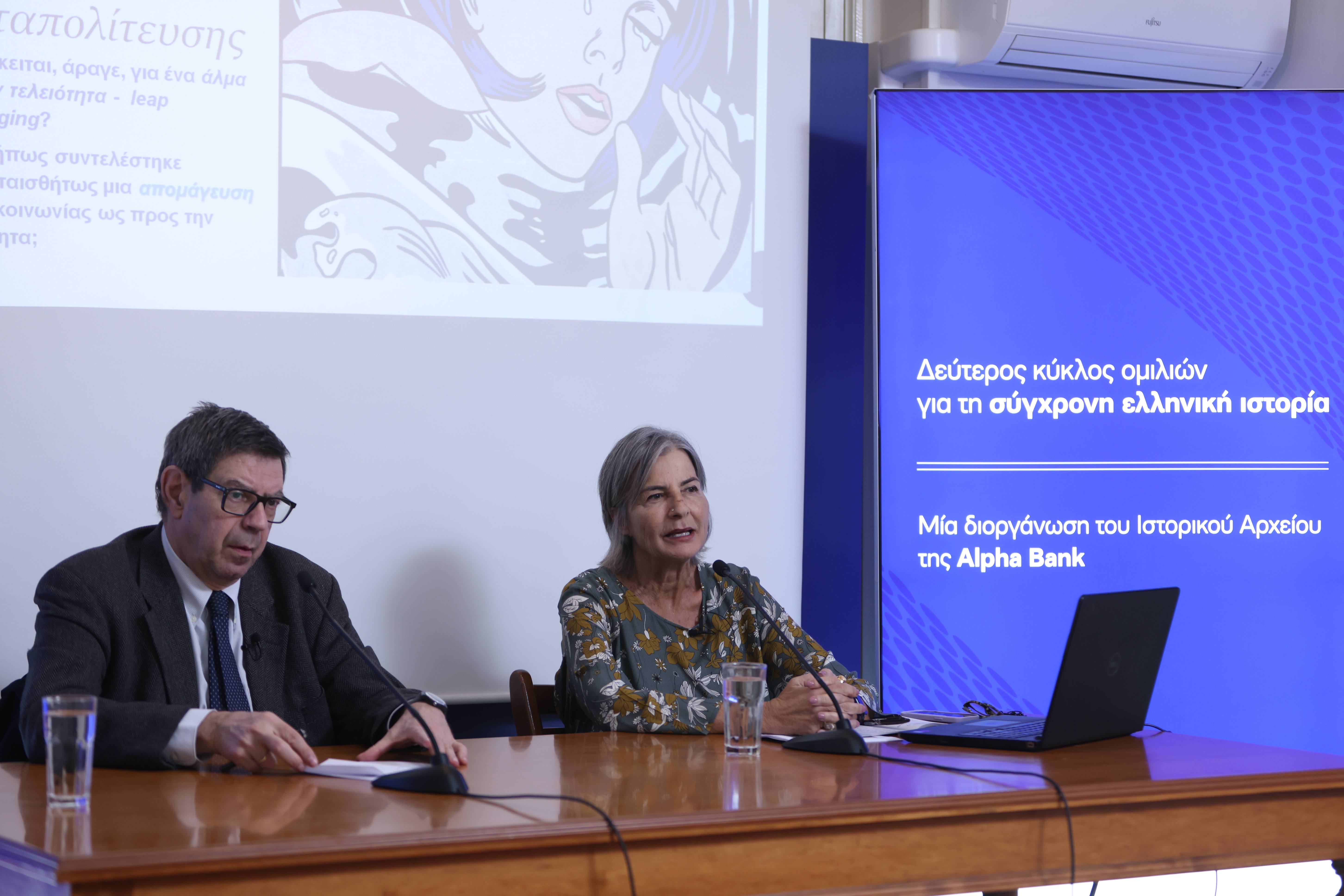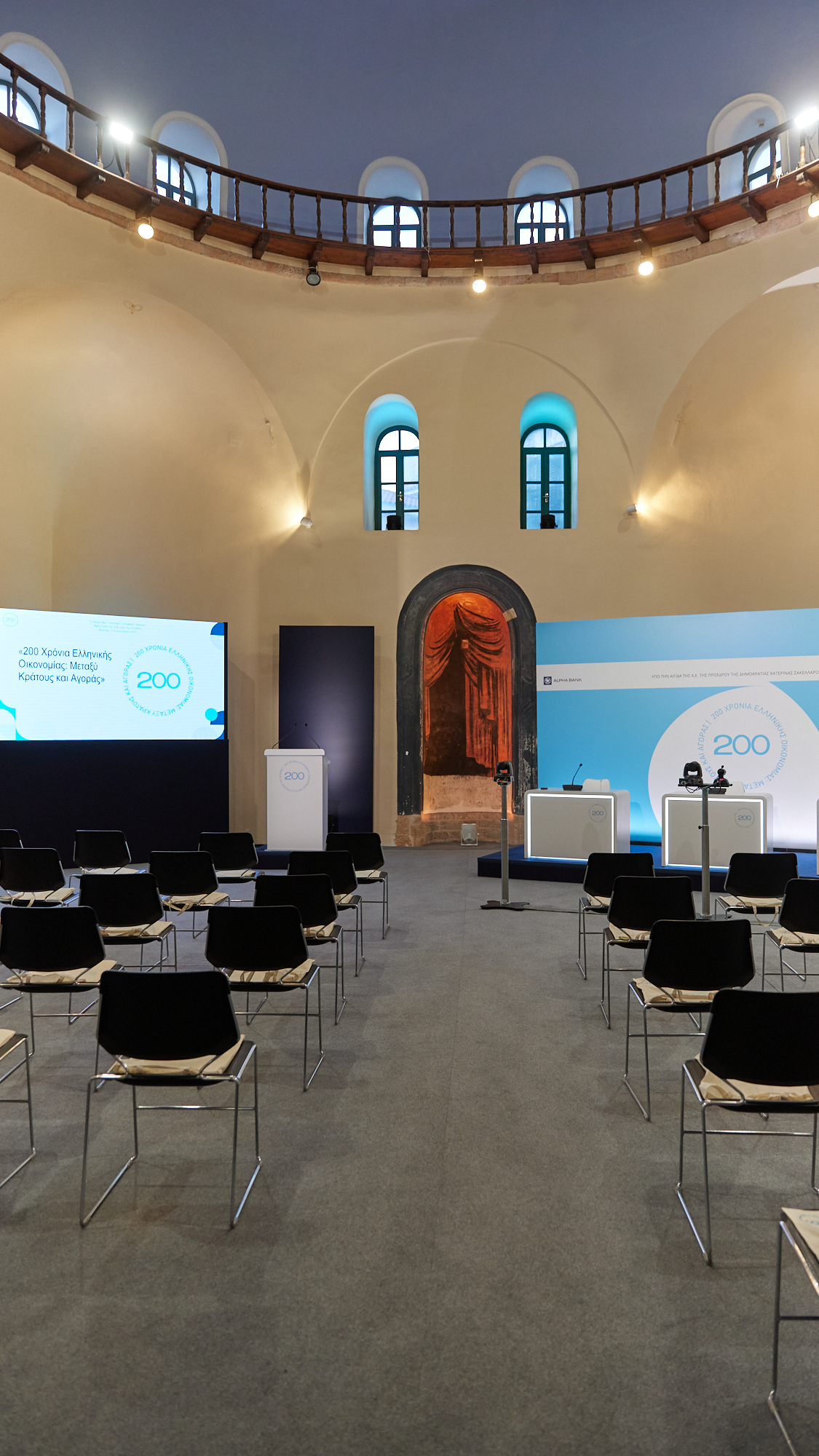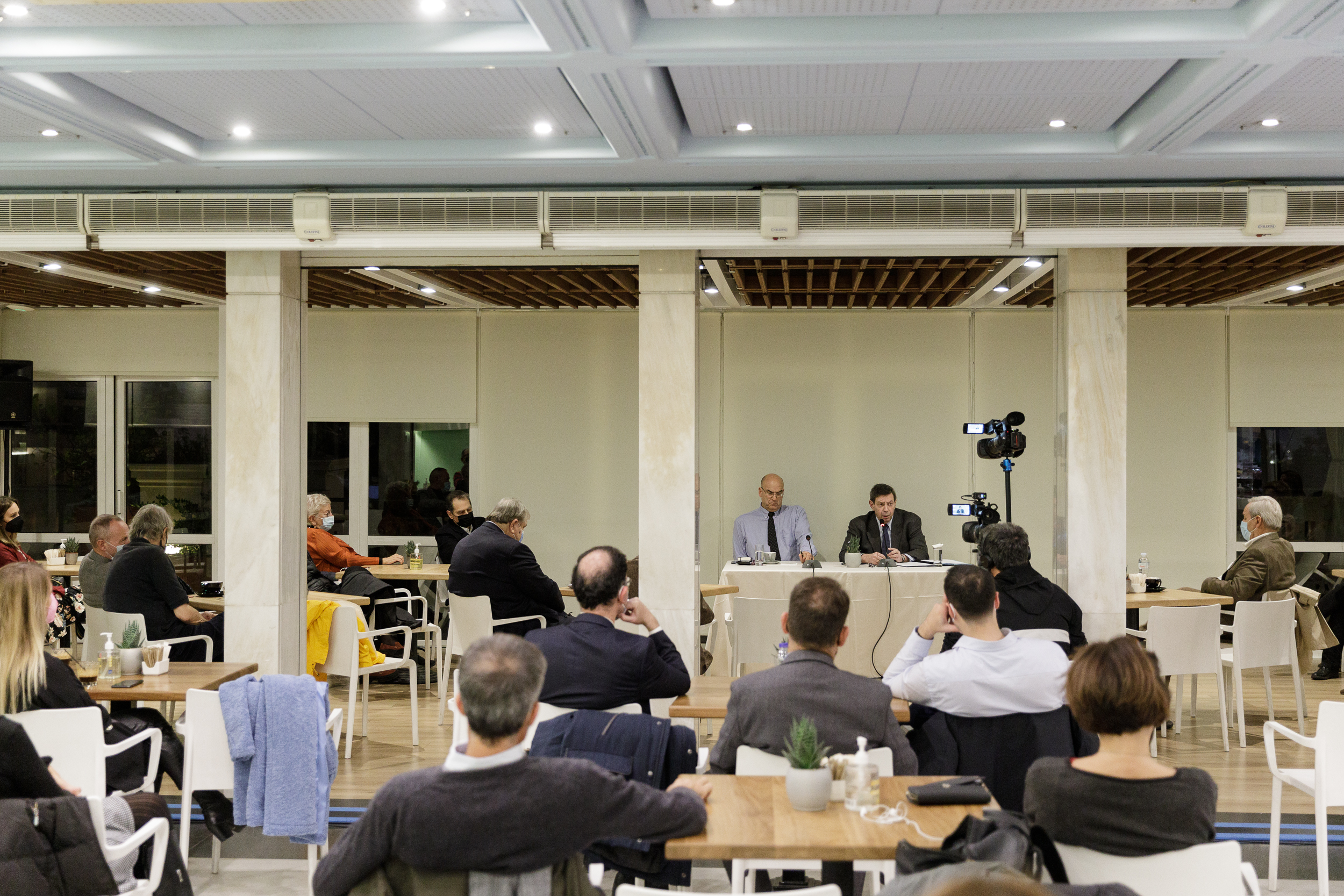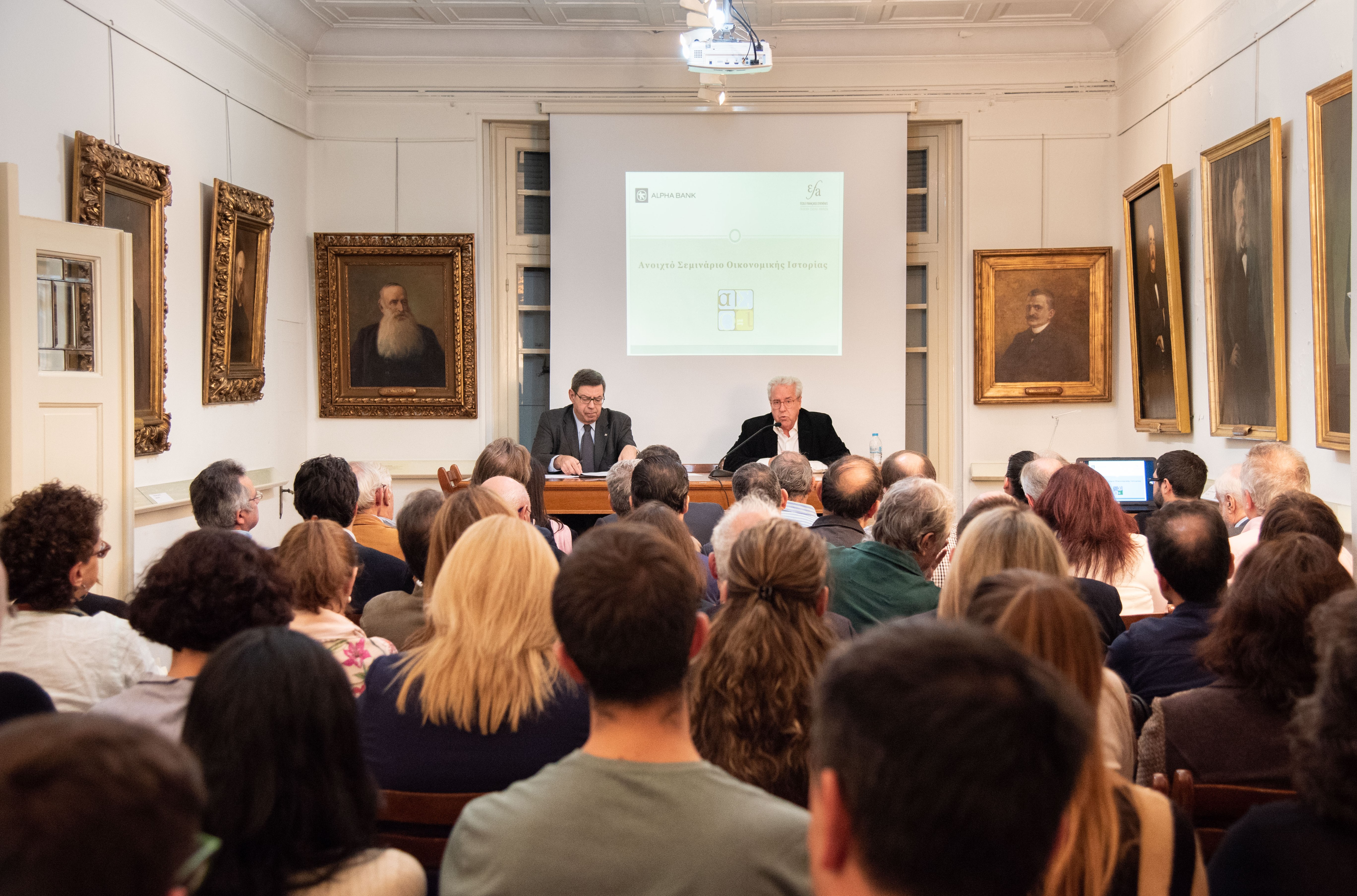Contact person: Konstantinos Christopoulos
"Paper Money – The Greek Banknote"
"Paper Money – The Greek Banknote" is an educational programme for children by Alpha Bank based on experiential learning, discovery and interaction. Through the programme, the children are introduced to the history of Greek banknotes. Teachers and students can attend the programme at the permanent exhibition hall of the Banknote Museum of Ionian Bank on the island of Corfu throughout the school year.
"Paper Money – The Greek Banknote" is an Alpha Bank educational programme that has been approved by the Greek Ministry of Education and Religious Affairs. Through targeted educational activities, we give students the chance to get an insight into the history of Greek banknotes from 1830, when the modern Greek state was established, to 2002, when Greece adopted the euro as its currency.
The programme takes place in the permanent exhibition hall of the Banknote Museum of Ionian Bank on the island of Corfu throughout the school year.
Through experience
We believe experiential learning is very important. That’s why the first thing children are asked to do is engage in dialogue.
At the same time we use teaching aids, such as images, movies and other material, which present topics from all eras of Greek history. This way we cover all educational levels and curricula.
Through discovery
Students get the chance to tour the Banknote Museum of Ionian Bank and take a closer look at the banknotes.
This way they discover how the banknotes are linked to historical events of various eras as well as to the present day.
Through interaction
Children can draw their own banknotes and solve banknote jigsaw puzzles created especially for the programme.
Through these activities we teach children the value of socialising and teamwork.
The invention of coins
The 1st part is an introduction to the invention and the early years of coins. Students can see exact replicas of the very first ancient coins ever to circulate.
The modern Greek state and the new currency
The 2nd part delves into the history surrounding the establishment of the Greek state and the first currencies issued:
- The silver phoenix, which was issued by Ioannis Kapodistrias.
- The paper phoenix, which was the first attempt to issue a paper banknote.
- The first drachma, which remained the official currency of the Greek state up until the appearance of the euro.
The children also get acquainted with the 5 banks with currency-issuing privileges in Greece:
- National Bank of Greece.
- Ionian Bank.
- Privileged Bank of Epirus.
- Bank of Crete.
- Bank of Greece.
We focus on 2 of these: the Ionian Bank, with headquarters on Corfu, in the same building currently housing the Banknote Museum; and the Bank of Greece, which was the only bank which had the right to issue banknotes.
As an activity, the students place in chronological order laminated cards with photos of ancient coins and banknotes with phoenixes, drachmas and euros. This way they create a link between the history of coins and the present day.
Through this part, children become familiar with the types (i.e. the themes depicted) of Greek banknotes, their special traits and their security features.
Getting to know the place
In the 3rd part we give each student a brochure with information and questions that correspond to their school grade.
They split into groups and try to find the answers on the exhibited banknotes and the museum labels on the display cases.
This way, children get even more familiar with the place, gain knowledge on the various exhibits and are taught the benefits of teamwork.
Knowledge games and activities
In the 4th part students split once again into groups. They work together to solve jigsaw puzzles depicting banknotes, and to recognise the monuments or personalities pictured on them.
The children also sketch and draw their own banknote on a blank card. The challenge for them is to incorporate all the special features they learnt during the programme: currency value, issuing authority and the names of the issuers.
These activities help the children learn through games. They practice their artistic skills, hone their creativity, stir their imagination and, of course, cultivate their social skills through teamwork.
Call on +302661041552 to participate in the programme and visit the Banknote Museum of Ionian Bank.
Participation is free of charge.
